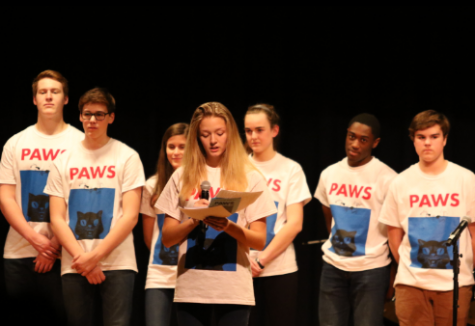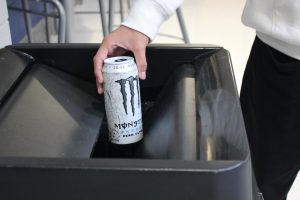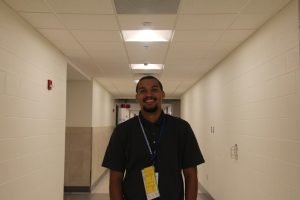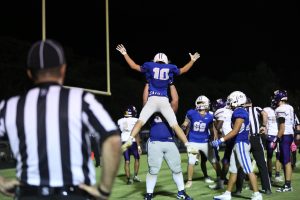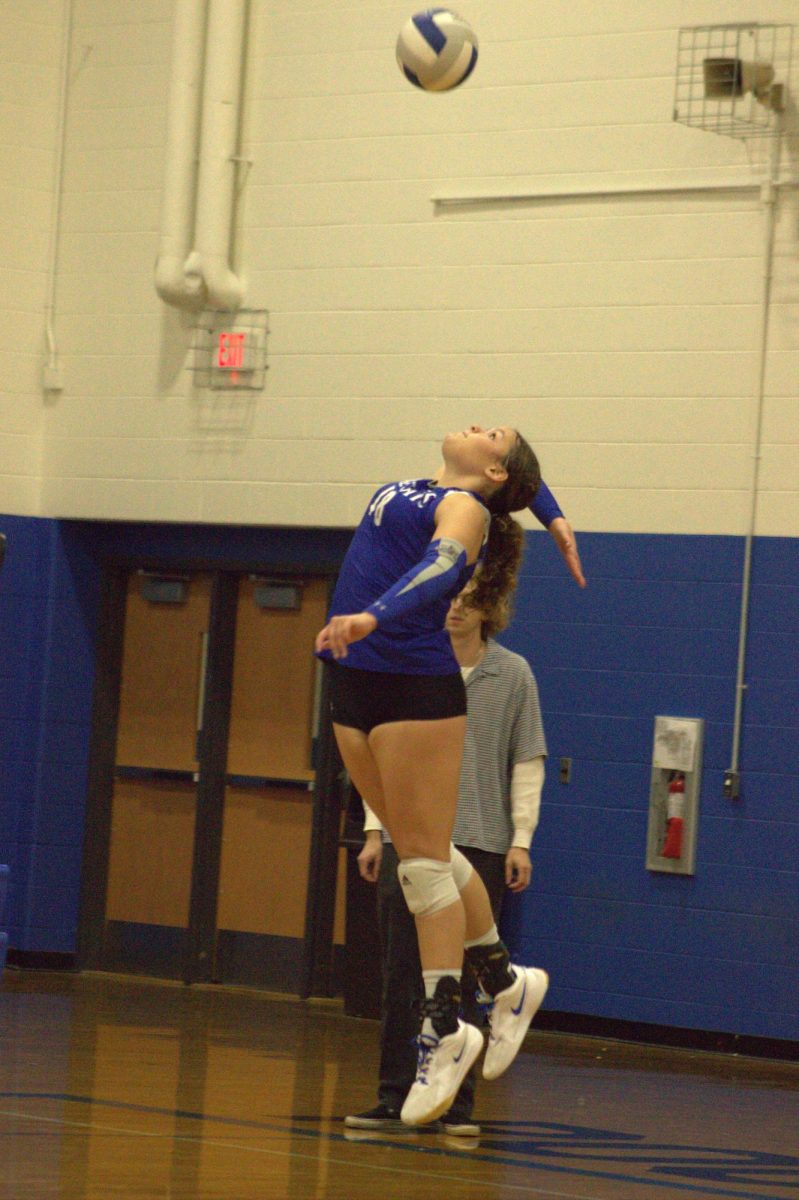Local Veteran Speaks On WWII Service
May 31, 2017
World War II veterans are becoming increasingly rare; however, one resides in Rockbridge: 93 year-old former Washington and Lee student and teacher John M. Gunn.
RCHS history teacher Dr. Sandra Hayslette hosted Gunn as a guest speaker for her World History II students on March 27, but opened the invitation to all RCHS students. Gunn spoke informally during lunches in Hayslette’s classroom, and then to an auditorium full of students during fifth period. Gunn spoke mainly on the Battle of the Bulge before taking questions from students.
Gunn was a sophomore at Washington and Lee University when the United States entered World War II. Because the Army Reserves promised to let students finish schooling upon enlistment, Gunn joined the United States Army at 19 years old. A few months later, he was called to duty along with other students from Washington and Lee. Gunn spent his twenty-first birthday in a foxhole in Germany.
“My whole generation, we believed in what we were doing. We believed it had to be done. We didn’t think of ourselves as heroes; we were just doing a job that had to be done,” said Gunn.
Gunn served in the 84th Infantry Division as a medical technician in Europe for 16 months. He did not participate in the D-Day invasion of Normandy, France, but his division was highly involved in the Battle of the Bulge. This battle was the final offensive led by the German Army, which ultimately failed.
“The Americans were facing those 20 [German] divisions with only about 12. My division as it turned out, took the point of the attack,” said Gunn. “The weather was terrible; it was freezing and very dense fog. You could hardly see anything. But then on Christmas Eve, the sky broke early in the morning. And at about 11 o’clock that morning, I counted more than 3,000 airplanes in less than half an hour.”
While aiding a surgeon in a makeshift hospital during the battle, Gunn also assisted in the capture of a German spy. Gunn and the surgeon were treating an American fighter pilot and first lieutenant who had hurt his ankle while parachuting. The injury was not serious and was treated quickly.
“After a few minutes, I noticed that this young surgeon was stalling. I didn’t understand, it was so unlike him. But after a few minutes he caught my eye and gave me a signal, he wanted to speak to me,” said Gunn. “He said, ‘Corporal Gunn, without telling anyone what you are doing, go back to company headquarters and tell the first sergeant you need to call Division Headquarters. Ask them to send a counter intelligence team down here. Get a carbine and put a cartridge in the chamber and without letting him see you, come sit behind this man and don’t let him move.’”
The man Gunn had treated was dressed like a First Lieutenant wearing an American Flight uniform. He spoke English, all of his papers were in order, and he claimed to be from Chicago, where he enlisted in the Air Force.
Eventually, two men from counter intelligence arrived to interview the pilot. One man led the interrogation asking about the Chicago Cubs, the man’s high school, Benny Goodman and other topics. Then, without hesitation, the interrogator asked a question in German, and the pilot began to respond in German before catching himself. The spy was then handcuffed and driven away. Gunn later realized that the man interviewing the spy was future Secretary of State, Henry Kissinger.
The Allied forces went on to push the Germans back across the Rhine River, which eventually resulted in Germany’s surrender. Gunn’s division liberated numerous prisoner of war camps, as well as a few small German concentration camps.
Gunn also performed the last medical examination for a former classmate and close friend at Washington and Lee University. Gunn’s friend, Lt. Harry Carter Kelley, Jr. died during the Battle of The Bulge. Gunn is currently searching for Kelley’s family in order to contact them.
Gunn also discussed the idea of if wars are necessary and which wars are justifiable. His experiences in World War II have influenced his opinions on modern issues.
“I’ve read a lot about war, and thought about it a lot in general. I’ve concluded that the United States should not have been in about half of the wars we were in. If there ever was a just war, I think World War II, from the point of the Western Allies, was one,” said Gunn. “The Axis Powers were evil. They were committing horrible crimes against innocent people. They had to be stopped. I was proud to serve in the war, I would do it again. It also left me with a sense it must never happen again.”
As Gunn responded to questions from students, he spoke on current issues in America and how the country has changed since World War II.
“In the second World War, we were united as I believe we’ve never been united before, because we believed in it. I think if there were a major attack on the United States we would come together. But that would be a dreadful way to accomplish it,” said Gunn. “We have cultural divisions, we have political divisions, and we have a government currently, which is divided within itself. And I do think if there were a major threat to us, we would come together.”
AP US History teacher Lauren Williamson attended the talk and believes veterans such as Gunn help students better understand history, and that veterans’ stories need to be heard before they disappear.
“The best thing is it gives [students] a first-hand account. I can tell you however much I can about a battle, you can look at a map, but here is somebody who has been there, that resonates with [students] a lot more than anything I could ever say,” said Williamson. “And especially with World War II veterans, as they’re getting older and older, there’s fewer of them left. So it’s really important to hear their stories.”
At the conclusion of Gunn’s presentation, students and teachers thanked him with a standing ovation.

